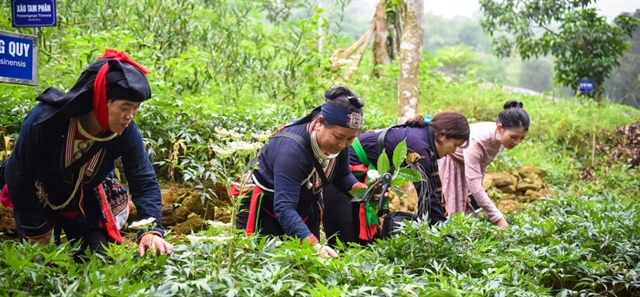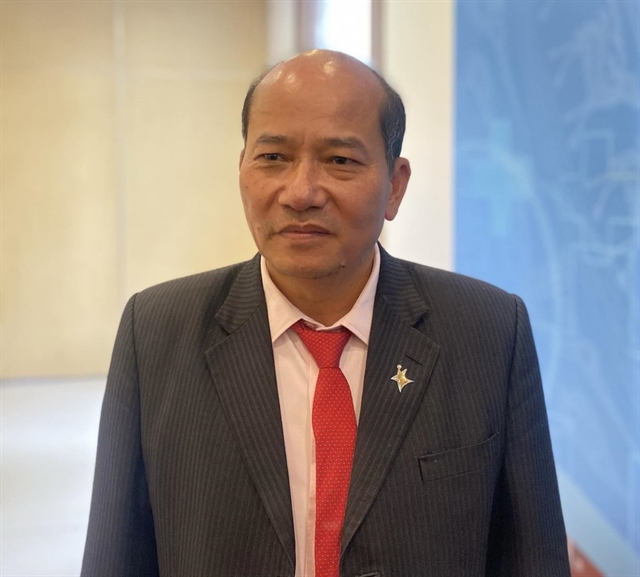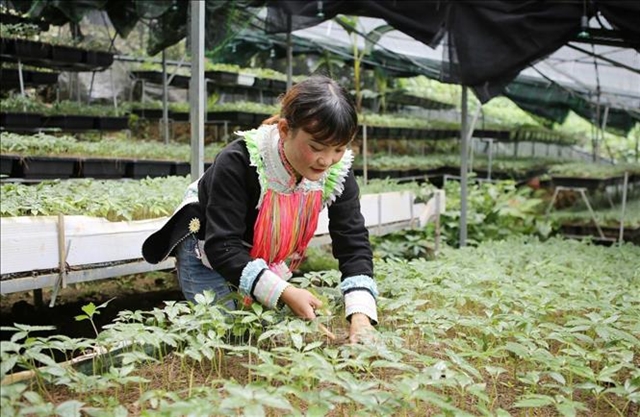 Sunday/Weekend
Sunday/Weekend

 |
| Assoc Prof Nguyễn Thế Thịnh, director of the Ministry of Health Department of Traditional Medicine. VNA/VNS Tạ Nguyên |
Associate Professor Nguyễn Thế Thịnh, director of the Ministry of Health Department of Traditional Medicine, discussed the challenges for herbal medicines.
What are the difficulties facing the bidding and procurement processes for traditional medicines in hospitals?
Recently, the healthcare sector has faced difficulties with the bidding process, drug supply, as well as the procurement of medical supplies and equipment. Shortages of medicines have also occurred in the traditional medicine sector, causes mainly related to the bidding and procurement processes.
Specifically when hospitals organise bidding for traditional medicinal herbs, the prices are mostly lower than the market prices, so almost no suppliers or businesses in the medicinal materials participated in it. This is because the prices of medicinal materials depend on planting, caring and yield of medicinal plants, so if there is a crop failure, the prices will be higher and vice versa.
The current issue is that the bid prices for medicinal materials approved at public healthcare facilities are much lower than the market prices. When the bid prices are lower, the suppliers do not participate because they cannot sell the medicinal materials at a loss. Meanwhile, the prices of traditional medicines have increased with the general price inflation in the market. Additionally, as the quality of medicinal materials and the quality of medical examination and treatment have increased, the prices should also be higher.
What are possible solutions?
In principle, traditional medicine can use interchangeable medicinal herbs. For example, in the group of blood-tonifying herbs, there will be seven or eight types. Therefore, when one of these herbs is in short supply, the doctor can prescribe a different herb as a substitute. The doctor can be flexible in this way without affecting the herbal formula used to treat the illness.
Many herbs, however, are irreplaceable so they still have to be imported. Meanwhile, there are certain regulations for foreign traders exporting to Việt Nam; many countries in the world, including China, still have their own standards that are not compatible with the regulations. The Department of Traditional Medicine has advised the Ministry of Health to submit to the Government a proposal to amend the decree regulating this issue so that it is in line with the common standards of other countries.
The department has also been proactive in implementing the directives of the Ministry of Health to advise and has issued many documents such as Circular 38, Circular 39 regulating the quality of medicinal herbs, or Circular 32 on regulations for processing and manufacturing.
The department is urgently revising circulars related to the reimbursement of traditional medicines. Essentially, the legal normative documents do not have any problems.
Amendments have also been made, closely following directives of the Government, so the supply of medicinal herbs and traditional medicines to hospitals has begun to stabilise.
The Department of Traditional Medicine and the hospitals have begun to bid for various types of medicines, combined with the reserve of medicines, so they have partially ensured the supply of medicines for patients.
 |
| A female worker is taking care of a bed of medicinal herbs. VNA/VNS Tạ Nguyên |
In your opinion, what are the long-term, sustainable solutions to solve the difficulties and ensure the stability of traditional medicine resources?
In addition to focusing on revising regulations on the bidding and procurement of traditional medicines at healthcare facilities, as well as regulations on the export and import of medicinal materials, we need to focus on local supply, investing in the cultivation of medicinal plants at home and quality of medicinal materials.
To reduce the amount of medicinal materials that need to be imported, Việt Nam needs to invest in science, to research substitute medicinal materials and products. They must be evaluated by the Pharmacopoeia Council for quality value and establish standards for making medicines in accordance with the provisions of the law.
The Pharmacopoeia Council and the Central Institute of Drug Testing coordinate with many other agencies to jointly invest in scientific research and in cultivation of medicinal plants to have substitute medicinal products, thereby proactively supporting the diagnosis and treatment of diseases using traditional medicines.
The Ministry of Health has recently issued the policy of developing traditional medicine and pharmacy in combination with modern medicine, so the use of traditional medicine has also become quite flexible. The supply of medicines has generally not faced many difficulties. VNS




